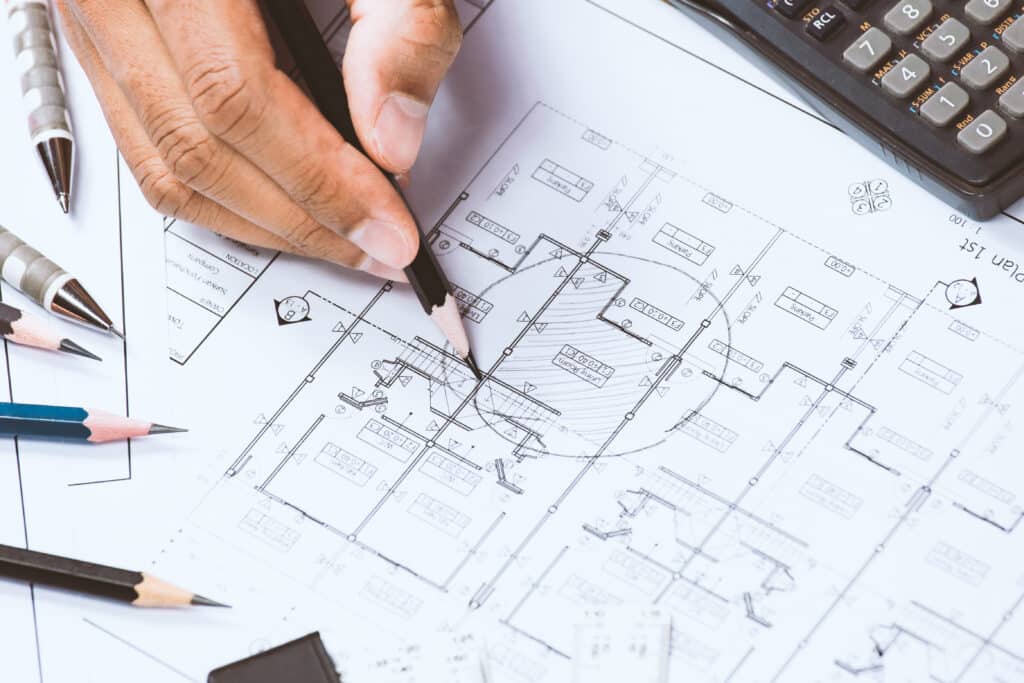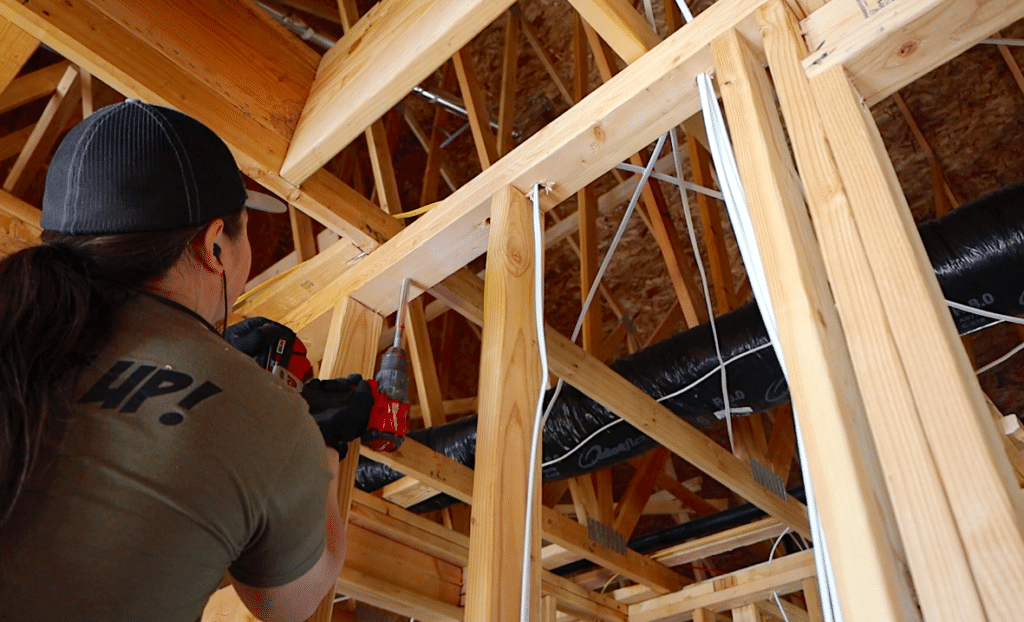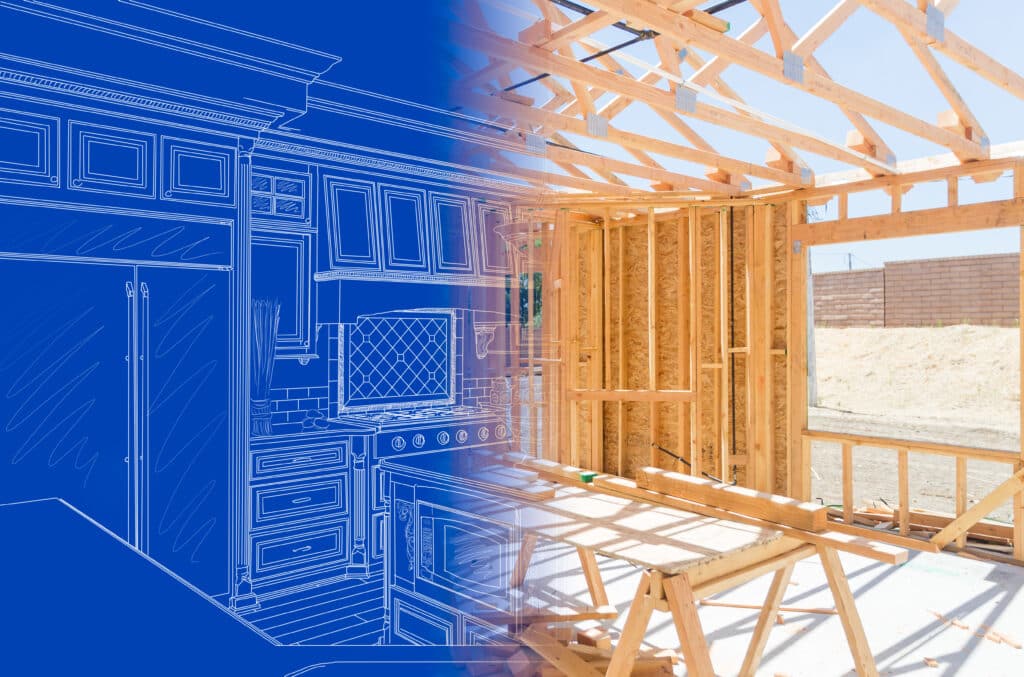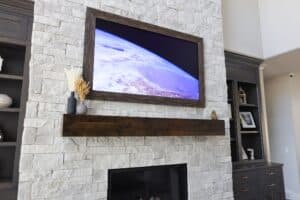Are you planning on or currently building a new home and considering smart home technology? If so, now it’s time to discuss about custom smart homes with your builders and integrators for the best possible results. Many home automation options require strategic timing and planning when building smart homes — like low-voltage prewiring to collaborating with contractors and architects.
So, when’s the best time to integrate home automation technology during a smart home build? Below, we’ll share the right time to design custom smart homes within construction timelines to ensure it stays on schedule, within budget, and has the best integration results.
When’s the best time to plan for home automation when building custom smart homes?
Common questions homeowners ask about home automation when building a new home are: “When should we start the conversation about smart home technology?” and “Who do I talk to about smart home technology?”
The biggest reason why homeowners don’t know when to bring up smart home plans during a new build is that they don’t know whom the responsibility falls. Is it the builder? The interior designer? The homeowner? If homeowners aren’t aware of who’s responsible for bringing up smart home technology during a new home build, they won’t know whom to ask about it.
The best time to include automation professionals during smart home construction is during the design phase. Discussing smart home ideas for new construction should be discussed as early as possible with your home builder while finding a reputable custom system integrator. Smart home integrators are contractors who specialize in home automation and are responsible for integrating smart home technology, including custom smart homes.
Builders and integrators work together to make the most out of your smart home build design.
Below we’ll explain why homeowners should discuss home automation with their builders and integrators during the design stage of new custom smart homes for the best integration and return on investment.
Why Homeowners Should Plan for Home Automation During the Smart Home Build Design
Common smart home mistakes during new builds are homeowners discussing smart home plans until after the design phase with their builder. Although home automation technology can be retrofitted into existing homes, it’s best to integrate smart home plans during the design phase for custom smart homes.
Some benefits of planning for home automation during the design phase of smart home construction are:
- Smart home technology and builder budgets are incorporated into the whole project
- Ease of financing with no additional costs from retrofitting home automation systems and equipment
- Easier planning with builders, architects, interior designers, and system integrators when all services are consolidated
- More custom smart house features and functionality options before the buildout
- Convenience of having all smart home build components completed in the same timeline
It’s vital for homeowners to understand that smart home technology should be part of the design and not an add-on after buildout in custom smart homes. Homeowners building a new home should consider home automation as a vital part of the design and functionality. By planning a smart home build early in the construction timeline, homeowners can effectively maximize their smart home benefits.

Risks of Planning Home Automation After the Smart Home Build Design
When homeowners discuss smart home technology after the design process of a new home build, it’s considered an optional add-on. However, integrating home automation early in the construction timeline is critical to the design, functionality, and best results.
Smart home wiring for new construction is a critical design element to discuss with your builders as early as possible, so they can work together on building and integrating your vision. For example, low-voltage lighting for new homes requires installing them within the home’s walls since they’re hidden. It’s more convenient for homeowners to have integrators install the wiring system when the home’s framework is being constructed instead of opening a wall to retrofit after buildout.
The risks homeowners face if they plan for smart home technology after the design phase are:
- Additional costs required to retrofit since it’s not within the same new build budget
- Less convenient to retrofit when integration can be done during construction
- Limited smart house features after the build is complete instead of a blank canvas
- Missed opportunities for expansive functionality and customization options after buildout due to the pre-set home design
- Integrators who aren’t qualified in smart home construction and only retrofitting
Not every smart home integrator is capable of collaborating with high-caliber builders, architects, and designers. When it comes to a smart home build, it’s vital to hire system integrators who know how to build a smart home with your design and build team.

At AIS, we’re proud to be certified by the Home Technology Association (HTA) and are an HTA Design Partner to provide the highest quality standards of smart home technology integration. Our smart home integrators have expertise working with high-caliber home builders, architects, interior designers, contractors, and homeowners to infuse home automation into their top-quality designs.
Homeowners should have all the options available in custom smart homes because it’s a significant investment. Getting the most out of your smart home build provides the best personalization, comfort, safety, entertainment, and value.
Design Your Dream Custom Smart Home with AIS
Planning for home automation during the initial construction stages is essential for the best long-term performance and custom design options. If homeowners wait to integrate until after the home design process, it can limit custom smart house features, cost more to retrofit, and result in lower-quality integration. Therefore, discussing smart home plans with builders and integrators early in the construction timeline is crucial.
Ready to design your dream custom smart home? Use our budget calculator to plan your expenses or contact us for help on how to build a smart home today!
Related Posts:
Smart Home Real Estate: How To Increase Your Home’s Resale Value




